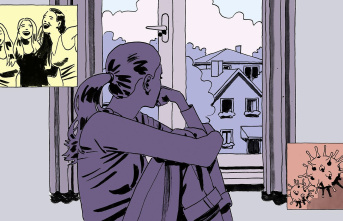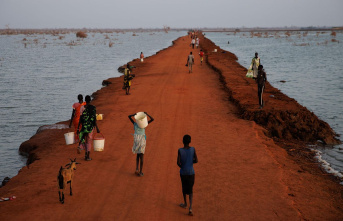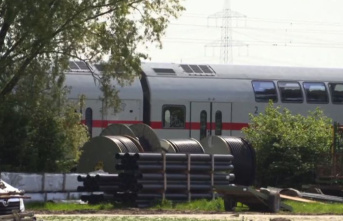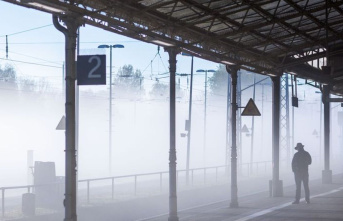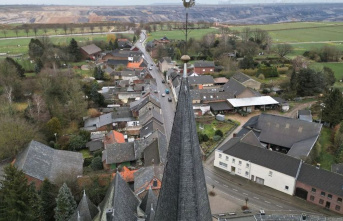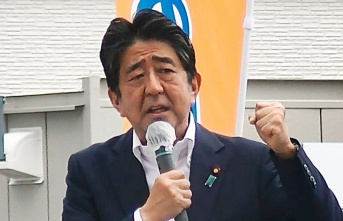COLOMBO (Sri Lanka) -- President Gotabaya Rajapaksa will resign in the next days, the speaker at Sri Lanka's Parliament stated on a tumultuous weekend that saw the prime minister announce he would resign and protestors storming the residences of both leaders over the country's severe economic crisis.
In a televised speech, Speaker Mahinda Yapa Abeywardena stated that he had informed Rajapaksa of the meeting between parliamentary leaders and that Rajapaksa requested that he resign. The president also agreed. Abeywardena said Rajapaksa would remain until Wednesday to ensure smooth power transfer.
Abeywardena stated, "He asked me for my resignation to inform the country on Wednesday the 13th because he feels the need to hand power over peacefully."
The speaker said, "There is no need to create more disturbances in the country. I ask everyone to keep peace for the country's sake and to facilitate a smooth transition."
Rauff Hakeem, an opposition lawmaker, stated that a consensus was reached to allow the speaker of Parliament as interim president and work on an interim administration.
Hours after protesters invaded his Colombo residence, the president announced his resignation. Video footage showed the jubilant crowds enjoying a swim in the pool. While some people sat on the beds of the home, others made tea and demanded statements from the conference room.
It wasn't clear whether Rajapaksa was present at the time. Mohan Samaranayake, a government spokesperson, said that he didn't have any information regarding the president’s movements.
Wickremesinghe's office stated that protesters also broke into Wickremesinghe’s private residence and set it ablaze. It was not immediately clear if Wickremesinghe was present at the time of the incursion.
Within hours Wickremesinghe had already announced his resignation amid protests calling for him to resign. However, he stated that he would not resign until a new government was formed, which angered protesters who wanted his immediate departure.
Wickremesinghe stated that today in the country there is a fuel shortage, a food scarcity, and the head of the World Food Program will be visiting us. He also said that there should be another government if the current government leaves.
Wickremesinghe stated that he suggested to President Rajapaksa to have an all party government but did not mention Rajapaksa’s whereabouts. The formation of a new government was being discussed by opposition parties in Parliament.
Rajapaksa named Wickremesinghe prime minister in May, in the hope that Wickremesinghe would use his contacts and diplomacy to revive a crumbling economy. As oil prices dropped and fuel and medicine shortages increased, people lost patience.
As leaders attempt to negotiate a bailout deal with the International Monetary Fund, India and other countries are providing assistance.
Months of protests have almost dismantled Rajapaksa's political dynasty. This ruling family has ruled Sri Lanka for the last two decades. Protesters accuse them of leading the country into chaos through poor governance and corruption. After violent protests, the president's elder brother was forced to resign as prime minister and seek refuge at a naval base.
After police lifted an overnight curfew that was condemned by lawyers and opposition politicians as illegal, thousands of protestors flooded the capital's streets Saturday. Many protesters crowded onto trains and buses, while others rode bicycles or on foot. Fuel supplies were scarce.
Security personnel failed to stop protesters running across the lawns of the presidential seaside office and into the colonial-era building.
Scuffles resulted in the injuries of at least 34 people, including two police officers. According to an official from the Colombo National Hospital, two of the victims were in critical condition while others sustained minor injuries. He spoke under anonymity because he wasn't authorized to speak to the media.
Sirasa Television, a privately owned television station, reported that at most six of its employees, including four reporters were taken to hospital after they were beaten by police while covering protests at the home of the prime minister.
The Sri Lanka Medical Council is the country's most prestigious professional body. It warned that hospitals are running on very little resources and will not be able handle large-scale casualties due to unrest.
Religious leaders and protestors said Rajapaksa had lost his mandate, and that it was time for him to leave.
Ven said that Ven's claim that he was elected by Sinhala Buddhists is untrue. Omalpe Sobitha is a prominent Buddhist leader. He called on Parliament to immediately convene to elect an interim president.
Wickremesinghe stated last month that the country's economic was in ruins and that negotiations to the IMF were difficult because Sri Lanka is now bankrupt.
In April, Sri Lanka announced that it would suspend repayments of foreign loans because of a shortage in foreign currency. The country's foreign debt totals $51 billion. It must repay $28 million by 2027.
U.S. U.S. Ambassador to Sri Lanka Julie Chung asked for peaceful protests and called on the military and police to give peaceful protestors the space and security they need.
Chung tweeted, "Chaos and force will not fix Sri Lanka's economy or bring the political stability that Sri Lankans require right now."
------
This report was contributed by Krutika Pathi, New Delhi and Bharatha Mallawarachi, Colombo Associated Press writers.


